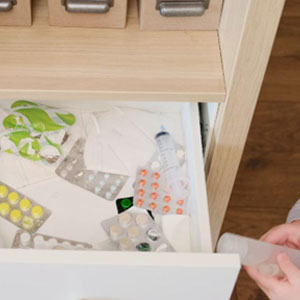Defending Innocence: Navigating The Burden Of Proof In Michigan Medical Child Abuse Cases
In Michigan medical child abuse cases, the burden of proof lies heavily on the prosecution. In this article, we delve into the complexities with critical insights, including:
- Perceived Burden vs. Legal Standard: Understanding the role of proof in constructing a robust defense against medical child abuse accusations is absolutely vital.
- Defensive Strategies: The challenges associated with medical child abuse cases are multifaceted and demand adopting finely developed strategic approaches.
- Parental Character: Uncover the balance required to showcase parental dedication to your child’s well-being without reinforcing claims of overmedicalization.
What Is The Burden Of Proof In Michigan Medical Child Abuse Cases?
In Michigan, as in any criminal case, the burden of proof in medical child abuse cases lies with the prosecution. The legal standard is that the prosecution must prove the defendant/caretaker’s guilt beyond a reasonable doubt.
This high standard is intended to safeguard against the injustice of forcing parents to prove their innocence. However, practical challenges arise in the perception of judges, jurors, and the general public.
Why Is Demonstrating Proof Still Necessary For Parents In Medical Child Abuse Cases?
A tendency exists among judges, jurors, and society to question parents when a child’s illness is not easily explained or never seems to improve. This is despite the legal requirement for the prosecution to meet a high beyond a reasonable doubt standard.
The inclination to find fault or assign blame somewhere can influence perceptions, potentially placing the burden on parents to prove their innocence. Society, and even many doctors or nurses, will say: “If you can’t tell us what’s wrong with your child, it must be you!” As such, proof in a medical child abuse case is absolutely vital to building as strong a case as possible.
What Are Some Defensive Strategies Against Medical Child Abuse Accusations?
Defending against accusations of medical child abuse requires an approach that can be adapted to your specific situation, but will still need to address four key aspects:
1. Providing an Explanation
a. To do this most effectively, you should collaborate with experts to offer alternative explanations for your child’s illness.
b. Establish a well-funded defense to engage a team of experts covering various medical aspects.
2. Demonstrating Parental Efforts
a. Navigate the balance of showcasing the steps you’ve taken to address your child’s health issues without inadvertently reinforcing accusations of overmedicalization.
3. Engaging Expert Testimony
a. Seek out experts, including child abuse pediatricians, pediatric radiologists, endocrinologists, and others, to provide professional insights into potential medical causes.
4. Establishing Parental Character
a. Emphasize your dedication, love, and efforts to get vital medical care for your child.
b. Gather character evidence from medical professionals, nurses, neighbors, friends, family, and others who can testify to your commitment to your child’s well-being.
The defense faces challenges in demonstrating the parents’ commitment to resolving the child’s health issues. While it is important to show the extensive efforts undertaken, there is a delicate balance to maintain, considering the risk of reinforcing claims of unnecessary medical interventions.
To counteract negative perceptions, a solid defense should focus on building a positive image of the parents. This involves highlighting the advantages and positive outcomes of medical appointments, as well as gathering testimony from various individuals who interacted with the family, illustrating the parents’ dedication and love for the child.
The defense in medical child abuse cases must address legal, societal, and forensic challenges. Effectively navigating these complexities requires a strategic and nuanced approach that encompasses sufficient medical knowledge, thorough investigation, and the presentation of a compelling narrative to counteract negative perceptions and establish the innocence of the accused parents.
For more information on Proof In A Medical Child Abuse Case, an initial consultation is your next best step. Get the information and legal answers you are seeking by calling (248) 509-0056 today.

Call Today For Your Free Case Strategy Session
(248) 509-0056

